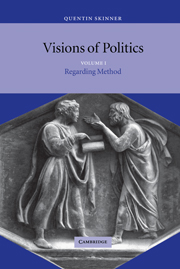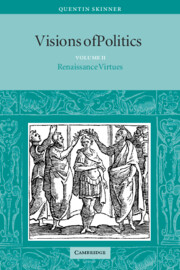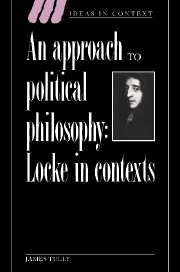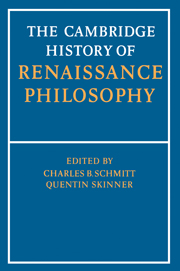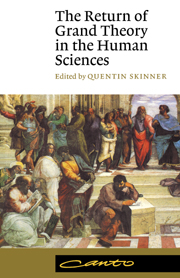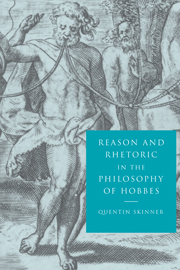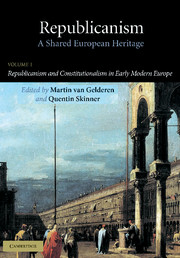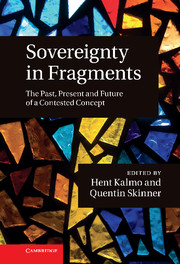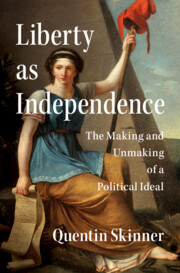Visions of Politics
3 Volume Set
- Author: Quentin Skinner, University of Cambridge
- Date Published: September 2002
- availability: Temporarily unavailable - available from TBC
- format: Multiple copy pack
- isbn: 9780521890755
Multiple copy pack
Looking for an inspection copy?
This title is not currently available on inspection
-
A collection of essays by Quentin Skinner, one of the world's leading intellectual historians. Divided into three volumes, they include some of his most important philosophical and methodological statements written over the past four decades, each carefully revised for publication in this form. In a series of seminal essays Professor Skinner sets forth the intellectual principles that inform his work. In the first volume he considers the theoretical difficulties inherent in the pursuit of knowledge and interpretation, and elucidates the methodology which he will use in the two successive volumes, which deal respectively with the political thought of the Italian Renaissance and with the political thought of Thomas Hobbes. Professor Skinner's work is characterised by philosophical power, limpid clarity, and elegance of exposition; these essays provide a fascinating digest of the development of his thought. Professer Skinner has been awarded the Balzan Prize Life Time Achievement Award for Political Thought, History and Theory. Full details of this award can be found at http://www.balzan.it/News_eng.aspx?ID=2474
Read more- The major essays of one of the world's leading intellectual historians
- Each essay revised and reset, with apparatus presented in consistent form
- Numerous classic pieces, collected together for the first time
Awards
- Winner of the 2007 David Easton Award - Foundation of Political Theory Section of the American Political Science Association
Reviews & endorsements
'This is an essential collection of essays, written by one of the world's greatest exponents of the history of political thought. … it should serve to challenge the all too often naive approach to the history of ideas employed in IR, while pointing to the richness of human lived experience and the political traditions that are our heritage and that have shaped and structured the very world in which we live.' International Affairs
See more reviews'As a retrospective showcase of the work of a major scholar, this is impressive. Skinner's ability to combine political and philosophical insight with minute knowledge of several centuries of political literature is awe inspiring.' The Times Higher Education Supplement
' … this is a deeply impressive collection which displays Skinner's exceptional range.' The New York Review
Customer reviews
Not yet reviewed
Be the first to review
Review was not posted due to profanity
×Product details
- Date Published: September 2002
- format: Multiple copy pack
- isbn: 9780521890755
- length: 1088 pages
- dimensions: 228 x 151 x 72 mm
- weight: 1.818kg
- contains: 12 colour illus.
- availability: Temporarily unavailable - available from TBC
Table of Contents
Volume I: General Introduction
Acknowledgments
Notes on the text
1. Introduction: seeing things their way
2. The practice of history and the cult of the fact
3. Interpretation, rationality and truth
4. Meaning and understanding in the history of ideas
5. Motives, intentions and interpretation
6. Interpretation and the understanding of speech acts
7. 'Social meaning' and the explanation of social action
8. Moral principles and social change
9. The idea of a cultural lexicon
10. Retrospect: Studying rhetoric and conceptual change. Volume II. 1. Introduction
2. The rediscovery of republican values
3. Ambrogio Lorenzetti and the portrayal of virtuous government
4. Ambrogio Lorenzetti on the power and glory of republics
5. Republican virtues in an age of princes
6. Machiavelli on virtu and the maintenance of liberty
7. The idea of negative liberty: Machiavelli and modern perspectives
8. Thomas More's Utopia and the virtue of true nobility
9. Was there a Calvinist theory of revolution? 10. Moral ambiguity and the renaissance art of eloquence
11. John Milton and the politics of slavery
12. Classical liberty, Renaissance translation and the English civil war
13. From the state of princes to the modern state
14. Augustan party politics and Renaissance constitutional thought. Volume III:
1. Introduction: Hobbes's career in philosophy
2. Hobbes and the studia humanitatis
3. Hobbes's changing conception of a civil science
4. Hobbes on rhetoric and the construction of morality
5. Hobbes and the purely artificial person of the state
6. Hobbes on the proper signification of liberty
7. Hobbes and the classical theory of laughter
8. History and ideology in the English revolution
9. The context of Hobbes's theory of political obligation
10. Conquest and consent: Hobbes and the engagement controversy
11. Hobbes and his disciples in France and England
12. Hobbes and the politics of the early Royal Society
13. Hobbes's last word on politics.
Sorry, this resource is locked
Please register or sign in to request access. If you are having problems accessing these resources please email [email protected]
Register Sign in» Proceed
You are now leaving the Cambridge University Press website. Your eBook purchase and download will be completed by our partner www.ebooks.com. Please see the permission section of the www.ebooks.com catalogue page for details of the print & copy limits on our eBooks.
Continue ×Are you sure you want to delete your account?
This cannot be undone.
Thank you for your feedback which will help us improve our service.
If you requested a response, we will make sure to get back to you shortly.
×

